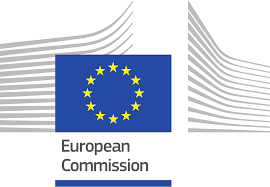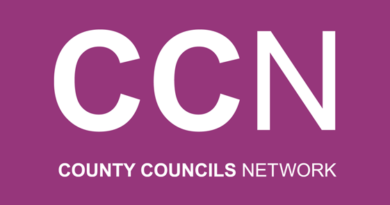PRESS RELEASE : 2022 Enlargement package – European Commission assesses reforms in the Western Balkans and Türkiye and recommends candidate status for Bosnia and Herzegovina [October 2022]
The press release issued by the European Commission on 12 October 2022.
Today, the European Commission adopted its 2022 Enlargement Package, providing a detailed assessment of the state of play and the progress made by the Western Balkans and Türkiye on their respective paths towards the European Union, with a particular focus on implementing fundamental reforms, as well as clear guidance on the reform priorities ahead.
The Commission recommends that Bosnia and Herzegovina be granted candidate status by the Council, on the understanding that a number of steps are taken to reinforce democracy, functionality of state institutions, rule of law, the fight against corruption and organised crime, guarantee media freedom and migration management in the country. The Commission will continue supporting reform efforts and accelerate the integration of the Western Balkans as a whole.
EU High Representative for Foreign Affairs and Security Policy/Vice-President of the European Commission, Josep Borrell, said: “We are recommending today to the Council to grant candidate status to Bosnia and Herzegovina. We are infusing a positive dynamic into the process and hope for the region to take the chance and follow up on it by implementing key reforms. We are not only assessing the performance of partners, but of future member states. The assessments we make now are also about the kind of Union we want for the future. And it is clear that we believe in the European future of our partners. Russia’s brutal invasion of Ukraine brings into strong relief the importance of EU enlargement, which takes on a new geopolitical significance. It is a long term investment into peace, prosperity and stability for our continent.”
Presenting this year’s Package, consisting of Communication on EU enlargement policy and annual reports, Commissioner for Neighbourhood and Enlargement, Olivér Várhelyi, said: “The enlargement policy of the European Union is a geostrategic investment in our European continent’s peace, stability, security, and socio-economic growth. Our reports offer a factual and fair assessment and a clear guidance precisely to allow our partners to identify where they need to go faster in reforms to move ahead. There is no alternative, and it is in our common interest to accelerate the integration process, starting with the Western Balkans, where we have been investing for many years to bring them closer to the EU. The recommendation to grant candidate status is a historic moment for the citizens of Bosnia and Herzegovina. I urge the leaders of the country to make the most of this historic opportunity and swiftly proceed with the steps identified in our recommendation. This will restart the work on reforms and on the fulfilment of the 14 key priorities set in the Commission’s Opinion which remain key for the opening of accession negotiations.”
Western Balkans
In the case of Montenegro, the priority for further overall progress in negotiations remains the fulfilment of the rule of law interim benchmarks set under chapters 23 and 24. To reach this milestone, Montenegro needs to intensify its efforts to address the outstanding issues, including in the critical areas of freedom of expression and media freedom and fight against corruption and organised crime and credibility of the judiciary. This requires political stability and constructive engagement by all stakeholders, leading to the establishment of a stable government and broad political consensus in Parliament on key reforms.
Serbia should as a matter of priority establish a government, firmly committed to the EU strategic direction and reform path. Further work and political commitment are needed to continue and deepen reforms and address shortcomings, in particular in the key areas of the judiciary, fight against corruption and organised crime, media freedom, freedom of assembly and the domestic handling of war crimes. Serbia also needs to improve as a matter of priority its alignment with EU foreign and security policy which dropped significantly. It also needs to robustly tackle all forms of disinformation.
Albania and North Macedonia opened a new phase in their relations with the EU following the first intergovernmental conferences on accession negotiations on 19 July 2022. Albania and North Macedonia need to further intensify efforts in key areas of rule of law, the fight against corruption and the fight against organised crime. Albania also has to address property rights, minority issues and freedom of expression.
In June 2022, the European Council expressed its readiness to grant the status of candidate country to Bosnia and Herzegovina and invited the Commission to report on the implementation of the 14 key priorities, with special attention to those that constitute a substantial set of reforms. Despite political turmoil and the general elections of 2 October, the leaders of the political parties represented in the Parliamentary Assembly of Bosnia and Herzegovina in June 2022 committed to principles for ensuring a functional Bosnia and Herzegovina that advances on the European path. Fulfilling the 14 key priorities from the Commission’s Opinion on the country’s EU membership application will allow recommending opening EU accession negotiations.
Kosovo needs to intensify its efforts to strengthen democracy, public administration, the rule of law and to fight corruption. The Commission stands by its assessment of July 2018 that Kosovo has fulfilled all visa liberalisation benchmarks and the proposal, still pending in the Council, should be treated as a matter of urgency.
On the normalisation of relations, while both Serbia and Kosovo have remained engaged in the Dialogue, the EU expects both sides to engage more constructively in the negotiations on the legally-binding normalisation agreement in the coming period and show flexibility in order to make rapid and concrete progress.
Türkiye
In the area of democracy, the rule of law and fundamental rights, Türkiye needs to reverse the negative trend as a matter of priority with addressing the weakening of effective checks and balances in the political system. Dialogue on rule of law and fundamental rights remains an integral part of the EU-Türkiye relationship. The underlying facts leading to the assessment that Türkiye’s accession negotiations have effectively come to a standstill, still hold.
The European Council has repeatedly re-affirmed its strategic interest in a stable and secure environment in the Eastern Mediterranean and in the development of a cooperative and mutually beneficial relationship with Türkiye. However, the situation in the Eastern Mediterranean has again become tenser. Türkiye must respect the sovereignty and territorial integrity of all EU Member States.
Türkiye’s continued policy of not aligning with restrictive measures against Russia is of concern due to the free circulation of products, including dual use goods, within the EU-Turkey Customs Union. Türkiye also needs to take decisive steps to improve alignment with EU CFSP, including EU restrictive measures, and avoid actions that go against its stated objective to join the EU.
Türkiye remains a key partner for the European Union in essential areas of joint interest, such as migration, counterterrorism, economy, trade, energy, food security and transport. High-level dialogues and intensified engagement in these areas continued. Türkiye has facilitated dialogue between Russia and Ukraine and played a key role in the agreement on the export of grains, although it has also decided to increase trade and financial relations with Russia.
Next steps
It is now for the Council to consider today’s recommendations of the Commission and take decisions on the steps ahead.


